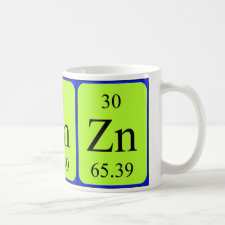
Authors: Khajeh M, Kaykhaii M, Mirmoghaddam M, Hashemi H
Article Title: Separation of zinc from aqueous samples using a molecular imprinting technique.
Publication date: 2009
Journal: International Journal of Environmental Analytical Chemistry
Volume: 89
Issue: (13)
Page numbers: 981-992.
DOI: 10.1080/03067310902719159
Alternative URL: http://www.informaworld.com/10.1080/03067310902719159
Abstract: In this article, the separation of zinc from aqueous samples by solid-phase extraction based on a molecular imprinting technique is described. Zn-imprinted polymer was prepared by free radical solution polymerisation in a glass tube containing ZnSO4, morin, 4-vinylpyridine as a functional monomer, ethyleneglycoldimethacrylate as a cross-linking monomer, and 2,2'-azobisisobutyronitrile as an initiator. The obtained polymer block was ground and sieved (55 - 75 μm) and the Zn - morin complex was separated from polymer particles by leaching with 2M HCl. The synthesised polymer particles have been characterised by IR and differential scanning calorimetric studies either before or after leaching. The effects of different parameters, such as pH, adsorption and desorption time, type and minimum amount of the eluent for elution of the complex from polymer were evaluated. Extraction efficiency more than 99% was obtained by elution of the polymers with 10 mL of CH2Cl2 - dimethyl sulfoxide (1 : 1, v/v). The detection limit of the proposed method was 2.9 μg L-1. A dynamic linear range in the range of 25 - 200 μg L-1 was obtained. The relative standard deviation was found to be below 9.2%. In addition, the influence of various cationic and anionic interferences on the complex recovery was studied. The method was applied to the recovery and determination of Zn in a few different real samples
Template and target information: zinc ion, Zn(II)
Author keywords: Zn determination, molecular imprinting polymer, morin, separation, water analysis



Join the Society for Molecular Imprinting

New items RSS feed
Sign-up for e-mail updates:
Choose between receiving an occasional newsletter or more frequent e-mail alerts.
Click here to go to the sign-up page.
Is your name elemental or peptidic? Enter your name and find out by clicking either of the buttons below!
Other products you may like:
 MIPdatabase
MIPdatabase









